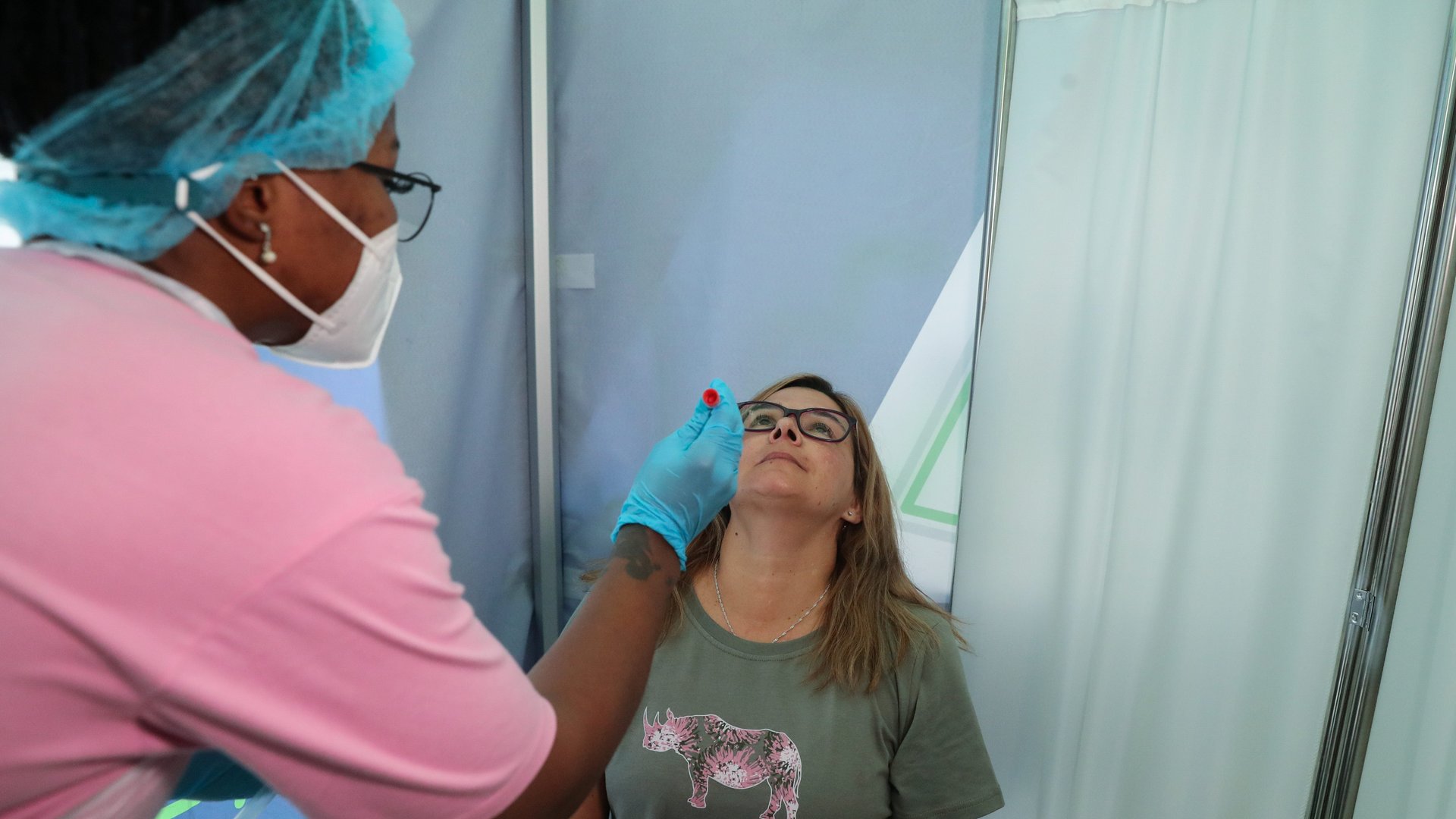What we know about the omicron coronavirus variant
This story has been updated.


This story has been updated.
There’s yet another covid-19 variant on the prowl and it’s got scientists worried. The World Health Organization convened an emergency meeting today (Nov. 26) and decided to classify this new strain as a variant of concern—it has been named omicron. Travel bans are already resuming around the world.
The B.1.1.529 strain, first detected in Botswana, is now spreading fast in various pockets of South Africa. Genome sequencing suggests nearly 75% of all the new cases belong to this category, almost entirely replacing the prevalent delta variant, according to epidemiologists.
The South African health ministry rang the alarm on Nov. 25 during a press briefing. Before this, Botswana and South Africa together had reported only around 10 confirmed cases of the variant—and one was detected in Hong Kong in a person who had travelled from South Africa.
Scientists, however, estimate that the new variant has been detected in up to 90% of the cases from the Gauteng province in South Africa, which is reporting nearly 1,000 covid-19 infections a day. The province’s test positivity rate has risen from under 1% to 30% in the past three weeks.
Are vaccines effective against omicron?
Scientists are currently studying the new variant’s characteristics, including the role of vaccines in halting its spread. “We’re flying at warp speed,” Penny Moore, a virologist at the University of Witwatersrand in Johannesburg, told Nature magazine.
But not enough is known yet, says professor Chris Whitty, England’s chief medical officer. The key questions for any any variant are:
- Can omicron break through vaccine protection against infections?
- And more importantly, can it break through vaccine protection against severe disease, which could lead to hospitalization or death?
mRNA vaccines, for instance, are theoretically easiest to tweak and target key mutations.
Why are scientists worried about B.1.1.529?
B.1.1.529 is worrisome especially because it is now replacing the already highly transmissible delta variant, which has wreaked havoc across the world, even in countries with high vaccination rates. The delta variant escapes immunity conferred by covid-19 vaccines and can cause mild-to-moderate illness, though the shots are still highly effective against preventing serious disease and death.
The new variant has worrying mutations—over 30—in the all-important spike protein of the virus. The virus infects the host cells and multiplies through these spikes. Any mutation in that anatomy of the virus could potentially mean higher transmissibility, decreased effectiveness of vaccines, or even more severe infections.
For these reasons, virologist Tom Peacock, who works at the department of infectious diseases at London’s Imperial College, has called B.1.1.529’s mutation profile “really awful,” possibly even worse than delta.
So far, though, these hypotheses need investigation, especially around vaccine efficacy and immunity from past infection.